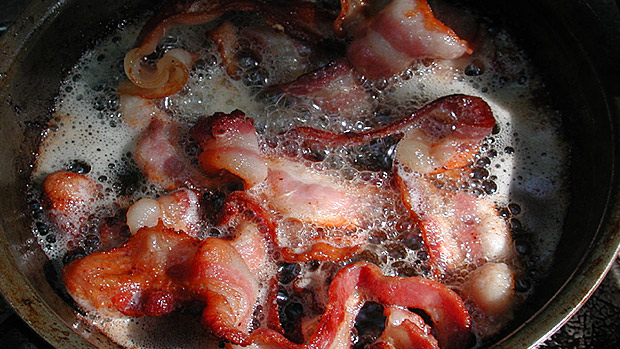Restricting calories, or burning more through exercise, is really the only way to lose fat. No matter the diet plan, they all have you cutting back on calories one way or another. But if you've been reducing calories for months and the fat loss has come to a halt, then it's time to start reverse dieting.
Reverse dieting is the process of ramping calories back up to maintenance levels without gaining fat. See, your body wants to stay in equilibrium. When you reduce calories your metabolism does everything it can to go back to that equilibrium. Once you're there, that's when the weight loss stops and you want to smash the scale and hide those lack-of-progress photos.
The best way to get your metabolism working with you rather than against you is to slowly ramp up calories. Adding 100-200 calories per week is the best way to mitigate fat gain and make it easier to continue losing fat in the near future. Here's what it might look like if you were eating 2000 calories per day and wanted to ramp up to 3000.
- Week 1: 2200 (calories per day)
- Week 2: 2400
- Week 3: 2600
- Week 4: 2800
- Week 5: 3000
Week One
Add protein for the extra calories in week 1 just to make sure you're hitting 1 gram per pound of bodyweight. (Two hundred extra calories is 50 grams of protein.) If you're already there, another 50 grams won't do any harm.
Week Two
Add 200 more calories through protein if you haven't hit the 1 gram per pound mark. If you're all set on protein, add about 15-20 grams of fat with olive oil, coconut oil, whole eggs, nuts, or avocados.
Week Three
This week is going to be 50 grams of carbs: a cup of rice or oatmeal or a medium sweet potato.
Week Four
Add another 50 grams of carbs.
Week Five
Add another 50 grams of carbs.
This slow increase in calories will go a long way in your fat loss efforts. Plus, it's a lot easier to cut calories later when you actually have some to cut out. Once you reach your goal caloric intake, stay there for 3-4 weeks to let your body adjust to the new calorie levels before dieting back down.
A Word of Warning
Depending on how low carb you were before you began, you'll experience weight gain. But don't equate "weight gain" to fat gain. Carbs retain water, so you'll probably gain some scale weight. Not a big deal. Sacrifice the short-term mental anguish of weight gain for the glorious fat loss benefits later on. Play the long game and trust the process.





